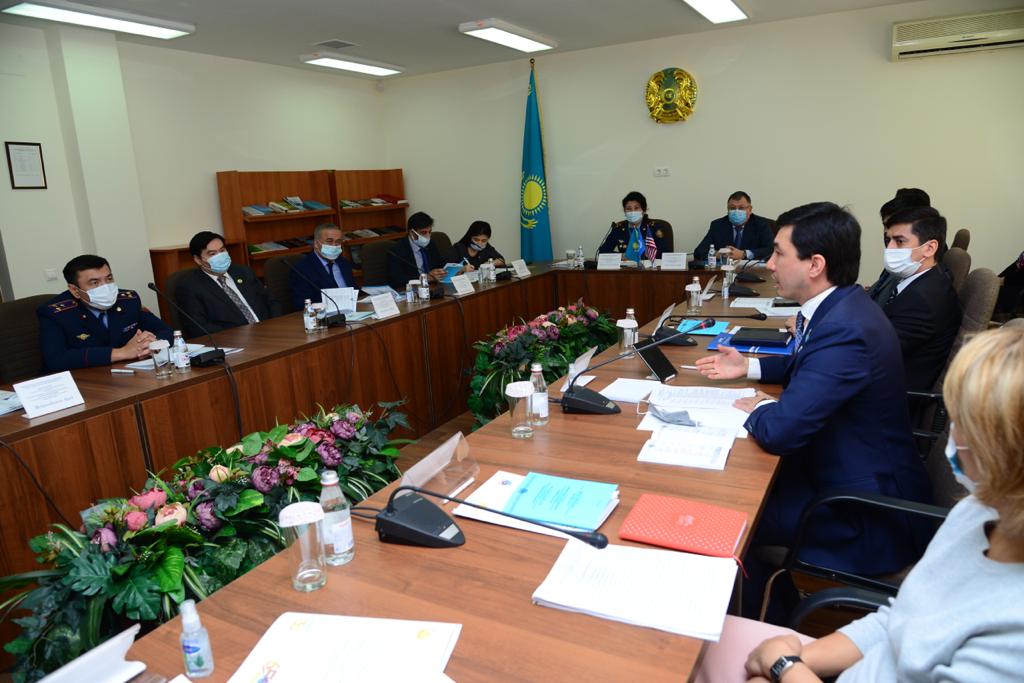On October 28 this year, in Almaty, the Chairman of the Management Board of the N. Nazarbayev Center for the Development of Interfaith and Intercivilization Dialogue Bulat Sarsenbayev took part in an international scientific and practical conference on the topic: «Future without drugs», organized by the Academy of the Ministry of Internal Affairs of the Republic of Kazakhstan named after M. Esbulatov.
Among the participants were also representatives of state bodies, non-governmental organizations, research institutes, higher educational institutions, including students, undergraduates, doctoral students, teaching staff of the Academy of the Ministry of Internal Affairs of the Republic of Kazakhstan
During the conference experts discussed key topics related to drug trafficking, countering terrorism, extremism and organized crime.
In his speech, the Chairman of the Management Board of the N. Nazarbayev Center Bulat Sarsenbayev emphasized that the spiritual leaders of world and traditional religions are extremely concerned about the rapid spread of drugs, radicalism in the world and seek to unite their efforts in the fight against this evil together with state and public organizations. «I believe that religious leaders can help us respond to new threats to global stability - international terrorism, drug trafficking, the involvement of young people in destructive and radical movements. They have moral, ethical and spiritual strength to positively influence people and they need to be given the opportunity to do this»,- said Bulat Sarsenbayev.

It was also noted that in view of the growing threat of religious extremism and terrorism in the world, Kazakhstan has been taking active measures for several years to counter destructive religious movements. In particular, the Center conducts an analysis of the religious situation in the country and the world on a regular basis, carries out religious studies and monitoring of the Internet space.
In general, the participants in the events noted that a systematic approach is needed, aimed at minimizing all economic, political, socio-structural and ideological factors that determine the radicalization of societies, especially youth.


















